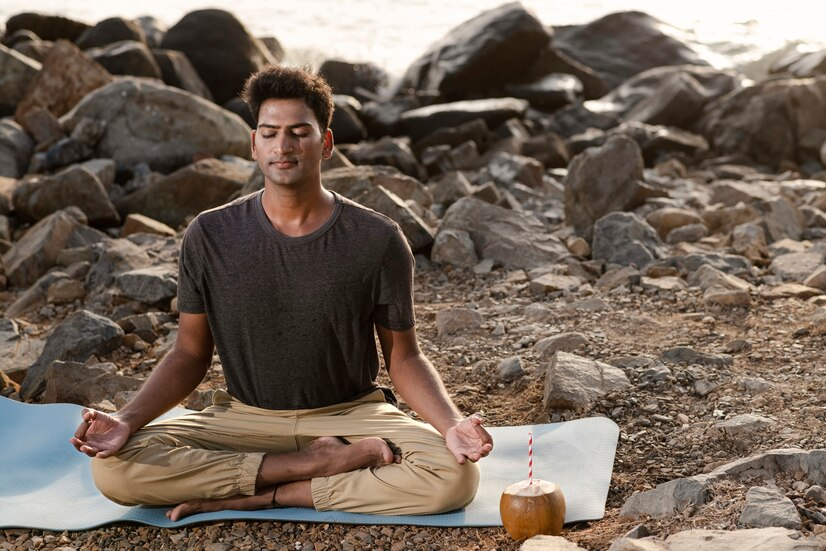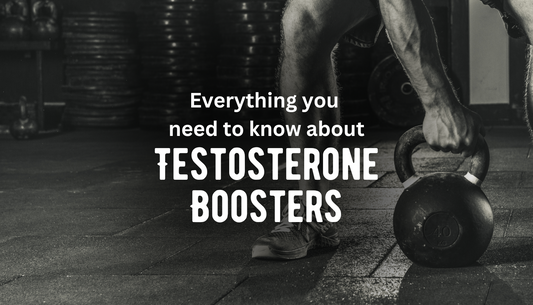
5 Ways to Improve Your Mental Health
Jacks NutritionShare
In England, one in four people experience a mental health problem of some kind each year. One in six people report experiencing a common mental health issue (such as anxiety or depression) in any given week. This week is Mental Health Awareness Week, an annual event aimed to encourage people to talk about and focus on their mental health. Your health and wellbeing is our priority. With this in mind, here are five tips we hope you’ll find helpful.
CONNECT WITH OTHERS
The Mental Health Foundation has highlighted loneliness as this year’s theme. Loneliness affects millions of people in the UK every year and is a significant driver of poor mental health. Given that the issue of loneliness has been exacerbated with the recent pandemic, it seems a fitting theme as the world reconnects.
Our first tip is about making a conscious effort to connect with others. It’s easy to let ‘life’ get in the way. But connections help improve your sense of belonging and self-worth. As you share positive experiences and provide emotional support, you allow others to support you too.
Try to make time for those closest to you. Prioritise time to chat, even if it’s just a quick catch-up. Those 10-minute conversations can be powerful. Face-to-face is usually the most effective, and something we longed for during the pandemic, but it’s not always possible. Pick up the phone. We’re all used to video calls now. Do what feels comfortable and is possible for you at the time. Whether it’s family, friends or colleagues, or making new friends, set some goals to initiate contact. That person will be delighted to hear from you. And you’re both likely to feel uplifted afterwards.
LEARN NEW SKILLS AND HOBBIES
When you’re not feeling on top form, your natural instincts tell you to hide away. Time out is often necessary for a period of time. But ultimately, the best thing you can do is channel your energy in positive ways.
Learning new skills and taking up new hobbies can help reduce stress, provide a sense of purpose and enhance your connection with others (as you’ll see, many of these benefits are intertwined). Research has shown that participating in leisure activities can increase life satisfaction, engagement and social support, while reducing depression, blood pressure and cortisol (the stress hormone).
Although solo hobbies are beneficial and should be curated, the most effective activities in this regard are those that create a sense of community and belonging. Combine learning new hobbies with new connections. For example, the fitness world has a real sense of community, whether it be local gym regulars, team sports or entire subcultures in bodybuilding, crossfit or strongman. The communal effect is powerful, and those involved will want to welcome you with open arms.
PRIORITISE SLEEP
In our blog exploring the benefits of a better night’s sleep, we talk about how a restful night is a crucial aspect of maintaining physical and mental health. Whether it’s promoting muscle growth or boosting your immune system, the physical benefits are extensive.
But the mental wellbeing benefits shouldn’t be underestimated. A significant piece of research, which involved over 270,000 participants, discovered that those who averaged six hours’ sleep or less per night were two and a half times more likely to have frequent mental distress.
Sleep deprivation can lead to a relentless vicious cycle. Initially, lack of sleep causes tiredness. This can contribute to difficulties in coping with daily life, to feelings of worry and stress, to more sleep deprivation, to tiredness. And so on. If this sounds familiar, try to look at ways of breaking this cycle. Here are a few steps that may help.
HOW TO IMPROVE SLEEP
- Establish a bedtime routine. One that lets you unwind and sends a message to your brain that it’s time for shut-eye. Reading, a relaxing bath and meditating (more on this in our bonus tip) are all good. Scrolling through your socials isn’t. Avoid screens at least an hour before bed.
- Create a restful environment. Make your bedroom dark, cool and quiet if you can.
- Avoid caffeine before bed. Instead, consider using supplements that support sleep. Our ZMA® Capsules contain sleep-promoting ingredients, such as zinc and magnesium. If you’re looking to optimise recovery after training, our Bedtime Protein Shake has been created to take just before bed.
- If worries get in the way of you drifting off, or wake you up in the night, try writing them down. Taking them out of your head and releasing them onto paper can help clear your mind.
- Exercise. (But you know this already). Which leads us nicely on to the next tip.



